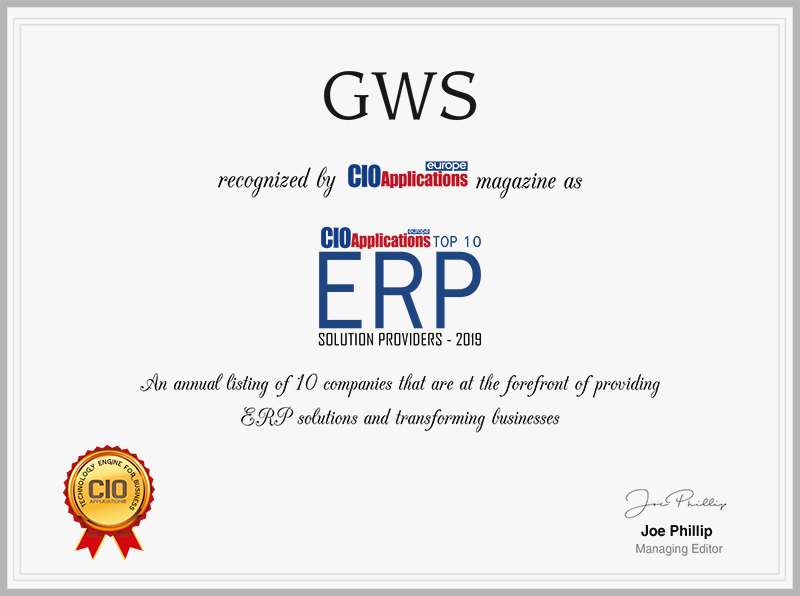Enterprise Resource Planning (ERP) systems are burning examples of the diminishing scope for growth or innovation in the Enterprise Software industry. After almost a decade of ERP systems’ penetration into business infrastructures, executives have realized the setbacks of these platforms, including security and productivity factors. Consequently, organizations are leaning toward Governance, Risk and Compliance (GRC) solutions, while reallocating their investments from conventional hardware and software to Internet of Things (IoT), Artificial Intelligence (AI), Blockchain and similar other new technologies.
Cloud-delivered ERP models are a thing of past; organizations are more inclined toward adopting systems offering more functionalities over ease-of-use, low costs, and flexibility. According to a report by G2Crowd, focus on feature-based ERP Platforms will increase from 48 to almost 75 percent in the fiscal year. Nevertheless, cloud-based systems have proven to be affordable for small and medium businesses (SMBs) due to their ease-of-integration, empowering them to improve their quality of work. The announcement of the General Data Protection Regulation (GDPR) in 2018 emerged as a red flag for organizations, helping them realize vendors that are not abreast of the latest compliance regulations. Besides GRC, firms are also switching to Environmental Health and Safety Tools (EHS) to stay industry compliant at all levels of operations. While cutting-edge technology ensures quality for the trading industry, it is an uphill task for organizations to decide on one from the wide assemblage of trends. To make this task easier, a distinguished panel comprising CEOs, CIOs, VCs, Analysts and the editorial board of CIO Applications Europe has selected a list of ERP solution providers. We present to you CIO Applications Europe’s “Top 10 ERP Solution Providers – 2019.”

Empowering Companies with Sophisticated and Tested ERP Systems
Dramatically changing markets have put traditional wholesalers and distributors in a difficult position; they need modern platforms in a disruptive world to grow and make acquisitions to reach out to more people, but are stalled by older ERP systems that thwart these attempts. GWS recognized this challenge early on, when they stepped into the market in 1992 with an ERP solution specific to the wholesale and distribution area to mitigate this challenge. GWS began its journey by servicing agriculture- and food-based wholesale distributors. In 2001, they collaborated with Microsoft with an aim to provide an effective solution that benefited a wider range of industries. In the following years, GWS developed a flexible ERP platform based on Microsoft Dynamics NAV, which paved the company’s entry into the technical trade, and the trade of sanitary products, steel, building material and the automotive independent after market. The availability of the ERP platform as an add-on to Microsoft Dynamics allowed customers across the globe to deploy it immediately. Old ERP systems often limit growth, preventing customers from expanding their companies or markets. GWS’ cloudbased solutions for wholesale and distribution companies makes it easy to grow, acquire new companies, and expand their business online as well as to new countries.
“As our products are available on Microsoft Azure, they can be deployed on the client’s system in an hour without servers and additional hardware. Today, our Microsoft Dynamics add-on has over 60,000 users.”
Georg Mersmann, CEO and managing director of GWS
Since several thousand transactions take place on a distributor website on a daily basis, GWS’ clients need to be well acquainted with their products. GWS ensures that its clients are well prepared for their IT solutions in order to make optimum use of them. A holistic project planning, conception of softwarechanges, update consulting and project controlling are used. The highly functional, standardized and updatable industry solution maps all industry-specific requirements, facilitates further development and provides project management tools (transparency, controlling) and flexible adaptation to individual business processes through parameterization. GWS utilizes AI in its replenishment process, which generates further value for its customers. The cloud-based solution focused on worldwide standard software is easily deployable in new countries requiring special ERP solutions.
GWS assists companies in stepping up their game to accomplish innovative advantages at a time when ecommerce websites are altering the face of the traditional wholesale and distribution marketplace with its extensive choices and timely doorstep deliveries of products. In doing so, the company aids traditional merchants in increasing their speed of delivery and improving their enterprise resource planning. In an instance, one such wholesaler approached GWS to increase the speed and efficiency of its deliveries. On deploying the GWS solution, the distributor was able to deliver goods to customers across Germany, Switzerland, and Austria up to five times a day.
“As the speed of delivery bypassed that of retail giants like Amazon, the distributor’s popularity increased rapidly. The combination of seasoned professionals with an in-depth understanding of the industry and its processes and highly-skilled developers make us second to none.” Georg Mersmann, CEO and managing director of GWS
Being familiar with industry-specific terminology and challenges, the company’s consultants can understand client issues and guide them to the right solutions, while developers identify market gaps and create unique solutions to solve them. As GWS focuses on core business ERP systems, the company aims to invest massively in new capacities and capabilities, like the new vertical add on for the automotive Independent After Market (IAM), which is cloudbased on Microsoft Dynamics 365 for Finance and Operations. The company is sure about its newly developed solution, which is expected to be well received both within the country and outside



